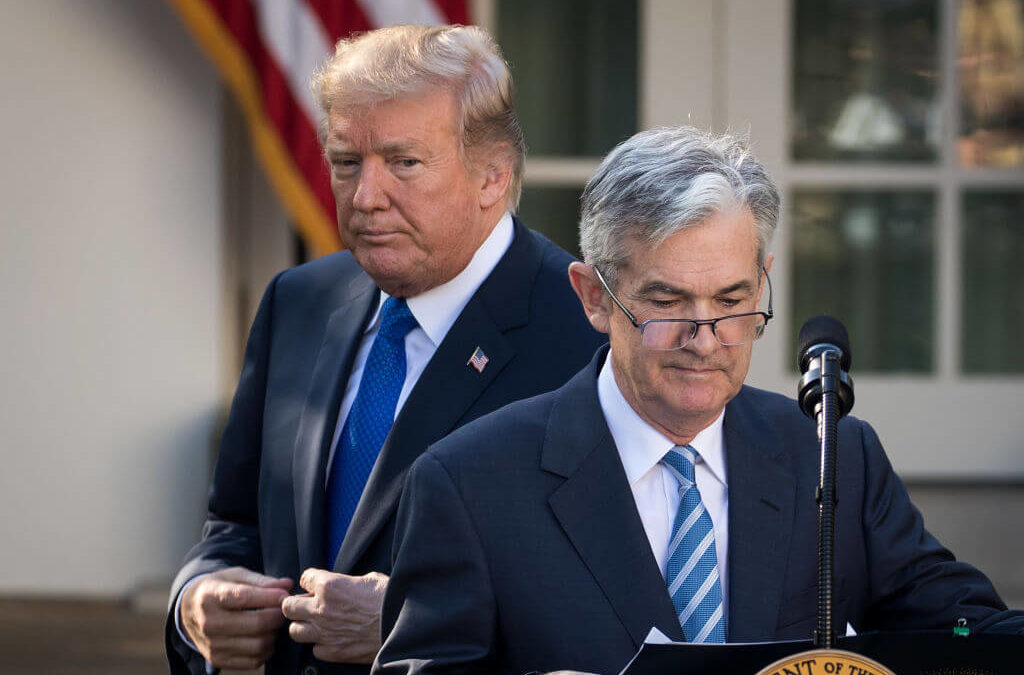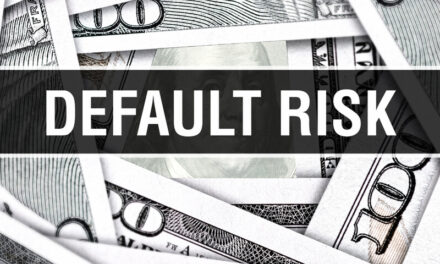President Donald Trump, a frequent basher of the Federal Reserve and Chair Jerome Powell, took to Twitter on Thursday to again voice his displeasure with the direction of U.S. monetary policy.
The Fed announced Wednesday it voted to cut its benchmark interest rate another quarter point to a range between 1.5% and 1.75%. It was the third rate cut since July and the first three cuts since 2008, largely reversing the central bank’s four rate cuts in 2018.
Trump tweeted that “People are VERY disappointed in Jay Powell and the Federal Reserve,” and by “People,” he means himself.
….our manufacturers. We should have lower interest rates than Germany, Japan and all others. We are now, by far, the biggest and strongest Country, but the Fed puts us at a competitive disadvantage. China is not our problem, the Federal Reserve is! We will win anyway.
— Donald J. Trump (@realDonaldTrump) October 31, 2019
Of course the president wants lower interest rates to help goose the economy heading into the next election, but what is Wall Street saying about the cut?
Per The Economic Collapse’s Michael Snyder:
“So if the Fed is being this crazy now, what are they going to do when a real financial crisis erupts?
“Perhaps they should just get it over with and create trillions of dollars right now and turn us into the Weimar Republic already. Because that is where all of this craziness is eventually going to take us. Our dollar is eventually going to be absolutely worthless and we will become the next Venezuela.
“I have always been highly critical of the Federal Reserve, but at least in other eras those running the Fed were at least mildly competent. But now it appears that incompetence is running wild over at the Federal Reserve, and we will all pay a great price for their mistakes in the not too distant future. For a long time, the Federal Reserve has insisted that the U.S. economy is in good shape. If that is true, there is no way in the world that the Fed should be cutting interest rates.”
Per Bloomberg:
Jon Hill, interest rate strategist at BMO Capital Markets: “The Fed cut rates 25 bp and removed ‘act as appropriate’ from the policy statement. This isn’t to say that the Committee won’t cut if needed in December, but this is a clear signal that the bias is not as skewed toward additional easing as it has been in recent months”, said Hill summarizing the consensus “hawkish cut” take.
“The general characterization of the economy was nearly unchanged; look for Powell to exert a more patient bias as the lagged impact of the mid-cycle adjustment works its way through financial conditions and economic activity.”
Andrew Husby, economist at Bloomberg: “In removing “will act as appropriate” the statement shows members are attempting to move away from an active stance, putting more emphasis on monitoring.”
However, as Husby notes, “as the 2-year yield reprices higher and the 10-year holds steady, flattening the curve, markets aren’t convinced the 75 bps of easing will be a sufficient mid-cycle adjustment.”
Win Thin, head of FX strategy at Brown Brothers Harriman: The “subtle Shift” in the Fed’s language reduces December rate cut odds; the Federal Reserve’s omission of its pledge to “act as appropriate” reduces the odds that the central bank will cut again this year.
“I think the Fed is saying it will wait for new information before cutting again,” Win says in an emailed note. “I don’t see another cut in December unless the data really fall off a cliff.” That will be “dollar-positive.”
Ira Jersey, interest rate strategist at Bloomberg Intelligence: “Although the Fed’s statement was basically in line with our expectations, the market appears to be taking the news a modestly less dovish than expectations. The same two dissenters should not be a surprise.”
“We don’t expect any major rate market response from this, but as has been typical of late, the press conference may be more market moving.”
Rishi Mishra, fixed income analyst at Futures First: “The language describing the economy is a bit too upbeat…it should have changed” said Mishra.
“They are trying to sell the idea of a resilient economy a bit too hard. I mean labor market remains strong, job gains have been solid…hardly! 2s10s flattened — I think that is because it’s hard to buy that assessment.”
Neil Duta, head of economist at Renaissance Macro: “The only measure of longer-term inflation expectations that is “little changed” is the Survey of Professional Forecasters” said Dutta, noting that “surveys of consumers and households are definitely not little changed.”
Eliza Winger, Bloomberg Economics Associated: “Bloomberg Economics expects Powell to leave the door open to additional easing in the press conference. The reality of slowing global and domestic growth prospects will compel the Fed to act again. We believe further easing is warranted.”




